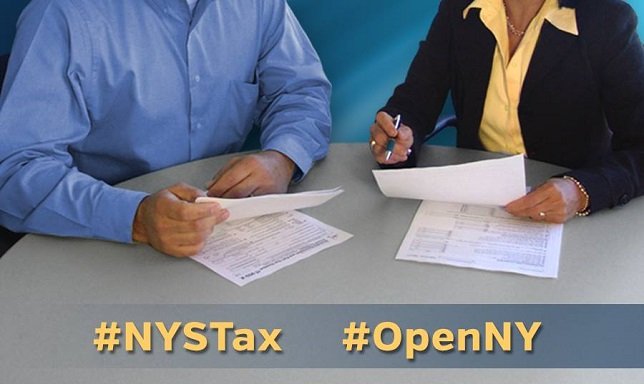Albany, NY - January 11, 2016 - Governor Andrew M. Cuomo today announced that 29 district attorneys’ offices will receive more than $14.2 million in grants to enhance their investigation of state tax evasion and welfare fraud cases. Prosecutors in Saratoga and Rensselaer counties will receive grants for the first time, while 27 additional municipalities will receive funding to continue their work to crack down on individuals and businesses who fail to pay taxes or commit fraud.
“This fraud is not only a theft from taxpayers, but it also diverts resources and assistance from our most vulnerable New Yorkers,” Governor Cuomo said. “This funding will give prosecutors the tools they need to help crack down on this fraud and hold accountable those who seek to game the system.”
District attorneys’ offices will receive the grants through the state’s Crimes Against Revenue Program, which is funded by the proceeds from investigations that result in tax revenues, fines and restitution being provided to the state. The grants will fund personnel, including forensic accountants, investigators and assistant district attorneys, who work to build cases for prosecution.
All taxes, such as sales, excise and income, and welfare benefits are subject to these investigations, which can focus on individuals, corporations or industries and include complex financial fraud and tax evasion schemes by major criminal enterprises. The funding cycle for the grants aligns with the calendar year. More than $175 million has been provided to the state since the program began in 2004. This represents a 166 percent return-on-investment on the more than $105 million in grants provided to district attorneys’ offices during that period.
All of the state’s 62 district attorneys’ offices could apply for grant funding. This year, the district attorneys’ offices in Saratoga County and Rensselaer County became grant recipients for the first time.
- Saratoga: $125,238
- Rensselaer: $108,750
District attorneys’ offices in the following counties already participate in the program and will use the grant funding to continue their CARP investigations and prosecutions:
- Albany: $286,700
- Bronx: $732,134
- Cayuga: $107,233
- Chautauqua: $85,000
- Chemung: $68,510
- Erie: $437,950
- Kings: $848,700
- Madison: $71,001
- Monroe: $203,169
- Montgomery: $30,260
- Nassau: $669,859
- New York: $5,358,000
- Niagara: $42,500
- Oneida: $170,725
- Onondaga: $87,220
- Ontario: $97,436
- Orange: $89,000
- Queens: $1,577,185
- Richmond: $240,643
- Rockland: $378,189
- Schenectady: $195,286
- Steuben: $42,713
- Suffolk: $1,697,801
- Ulster: $151,815
- Warren: $63,000
- Washington: $38,250
- Westchester: $294,104
The state Division of Criminal Justice Services works with the Department of Taxation and Finance to administer the program. Tax and Finance serves as the program expert by providing technical assistance and helping to identify cases for investigation while the Division of Criminal Justice Services administers the grant funding.
Michael C. Green, executive deputy commissioner of the Division of Criminal Justice Services, said, “Welfare fraud and tax evasion cases are often complex and require a great amount of specialized resources to crack. Some may require specialized personnel, such as a forensic accountant or other investigators specializing in financial crimes. This funding helps district attorneys’ offices both large and small with such investigations so that they have the resources to bring these cheaters to justice. This state investment into local law enforcement is a prime example of one that will ultimately pay dividends to all New Yorkers.”
Jerry Boone, Commissioner of Taxation and Finance, said, “This program helps level the playing field for honest New Yorkers by providing local law enforcement with additional resources to investigate and prosecute tax crimes. We will continue to partner with district attorneys to root out tax evaders statewide.”
The New York State Division of Criminal Justice Services is a multi-function criminal justice support agency with a variety of responsibilities, including law enforcement training; collection and analysis of statewide crime data; maintenance of criminal history information and fingerprint files; administrative oversight of the state’s DNA databank, in partnership with the New York State Police; funding and oversight of probation and community correction programs; administration of federal and state criminal justice funds; support of criminal justice-related agencies across the state; and administration of the state’s Sex Offender Registry.
The New York State Department of Taxation and Finance annually processes 25 million tax returns and collects more than $90 billion in annual state and local revenue. More than 96 percent of the taxes collected are remitted voluntarily by taxpayers. The remaining 4 percent is a result of the agency’s enforcement programs and its work with local, state and federal agencies.










